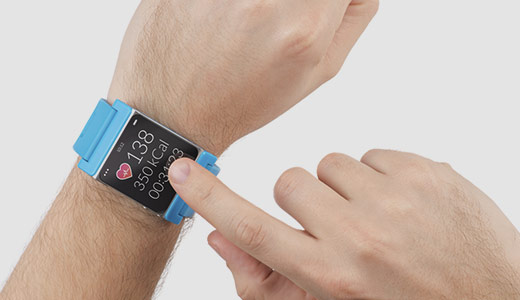I recently upgraded my phone to a snazzy iPhone 6. It works just as well as my old iPhone did, only with a bigger screen. I still have the same apps. I still use it in much the same way. For me, phones are fairly utilitarian devices: I don’t want or need my new phone to wow me or sing me to sleep. And I certainly don’t want it nagging me to stop eating Girl Scout cookies.
But a few days ago, I did notice (or, rather, re-notice) the phone’s “health” button. Now, my old phone had one, too, but it didn’t seem to do much of anything. It was part of an operating system that couldn’t be utilized by my ever-so-ancient smartphone, making it the tech equivalent of the belly button: Interesting, but not particularly functional. I learned to ignore it on my old phone, and was in the habit of ignoring it on my new one, too. But this day, I decided to open the app.
And what did I discover? My phone’s been obsessively counting my steps.
But I already carry around another device that counts my steps—a little Fitbit dongle. For nearly a year, the dongle and I have been as close-as-close-can-be (you just can’t get much closer than my front pocket). I’ve become so used to it chirpily informing me of how many steps I’ve taken during a given day that, if I forget to wear it (as sometimes happens), there’s a part of me that feels like my steps haven’t just been counted: It’s like they don’t count at all.
I was despondent when I left the Fitbit at home when I went to Florida to run the Disney World Marathon. “Just think about all the steps I’m losing!” I moaned to my wife. All the 50,000 steps I likely took during that marathon were just, quite literally, discounted, and my body wouldn’t know to shed the requisite number of fat cells. And so when I came home after Disney World and weighed myself, I was not surprised I weighed exactly the same as I did when I left … and naturally, I blamed the missing Fitbit. (My bacon-slathered vacation breakfasts, I’m sure, didn’t factor in at all.)
I had grown used to my Fitbit’s obsessive fixation on my health. Too used to it, perhaps. But now, with two devices literally counting every step I take, it’s starting to feel a little weird—and not just because they never actually agree with each other.
We live in an age wherein our devices often know us better than members of our own families. Google wishes us a happy birthday. Our browsers know our weakness for, say, uber-expensive office supplies and bombard us with ads for rhinestone-covered manila folders. Our phones know where we are, where we’re going and who we’re going to meet there. I’m surprised that my own phone hasn’t started playing, of its own accord, The Police’s “Every Breath You Take.” It knows I have it on a couple of playlists, after all.
The Apple Watch is scheduled for release April 24, and its proponents say it’ll have the ability to make us all healthier. Sharing a close working relationship with the wearer’s iPhone, it’ll be able to count your steps, too, and maybe monitor your heart rate. Third-party developers are looking at ways for it to track blood glucose levels and lung function. If the technology gets any better, I’m pretty sure there’ll be an app that subconsciously forces the user to walk into the nearest grocery store and buy carrots.
And all this is good, I realize. Those who utilize these healthy apps will likely be healthier. They’ll live longer. And thus, they’ll be able to buy several additional generations of iPhones.
But there are days when I’d rather eat Cheetos, y’know? And on those days, I’d rather not have all my myriad of devices shaming me. I feel guilty enough as it is.






Recent Comments